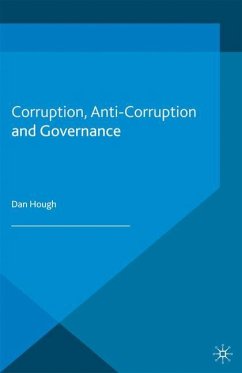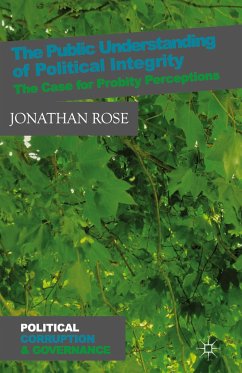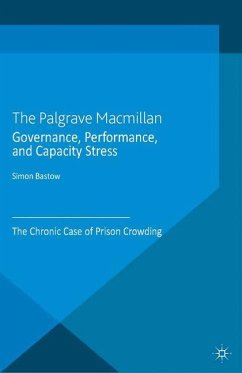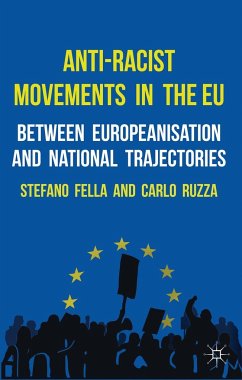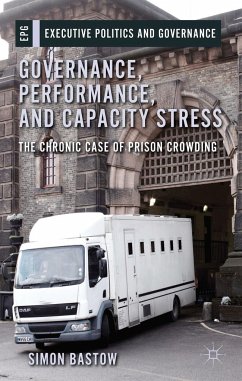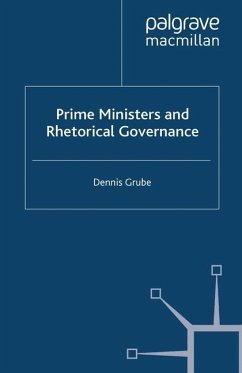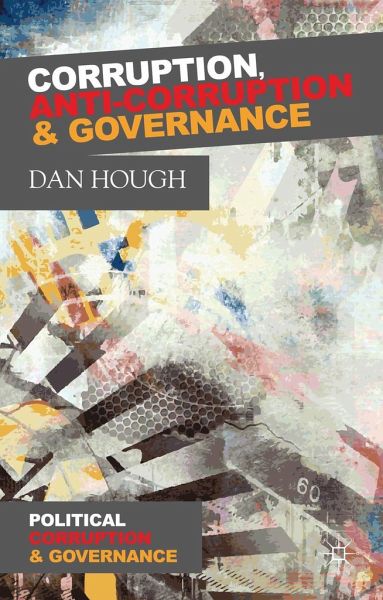
Corruption, Anti-Corruption and Governance
Versandkostenfrei!
Versandfertig in 6-10 Tagen
68,99 €
inkl. MwSt.
Weitere Ausgaben:

PAYBACK Punkte
34 °P sammeln!
By exploring the anti-corruption strategies in six countries, this book is the first detailed, cross-national analysis on techniques to address corruption. It highlights the importance of understanding that quality of governance is critical to tackling corruption and that only when this link is truly appreciated can inroads into corruption be made.



